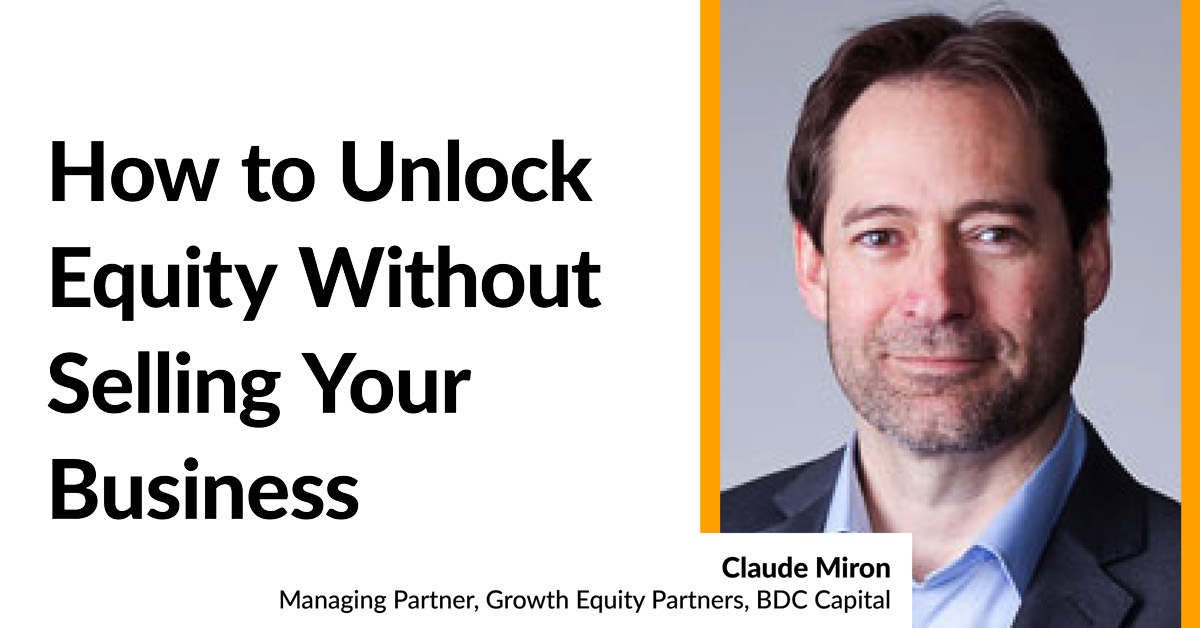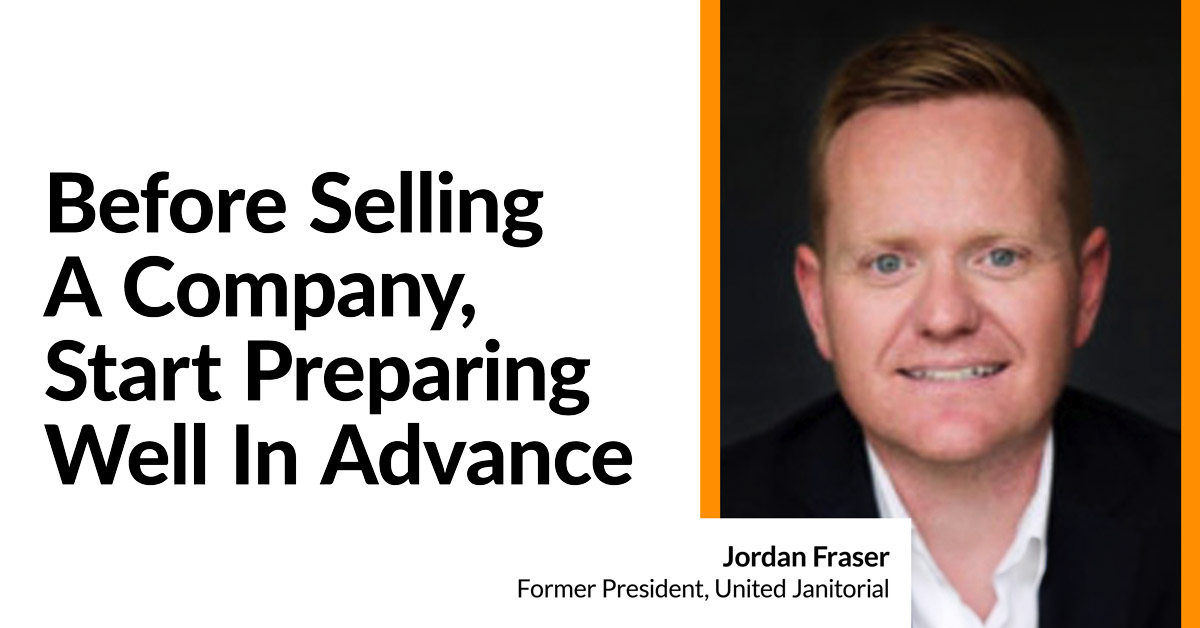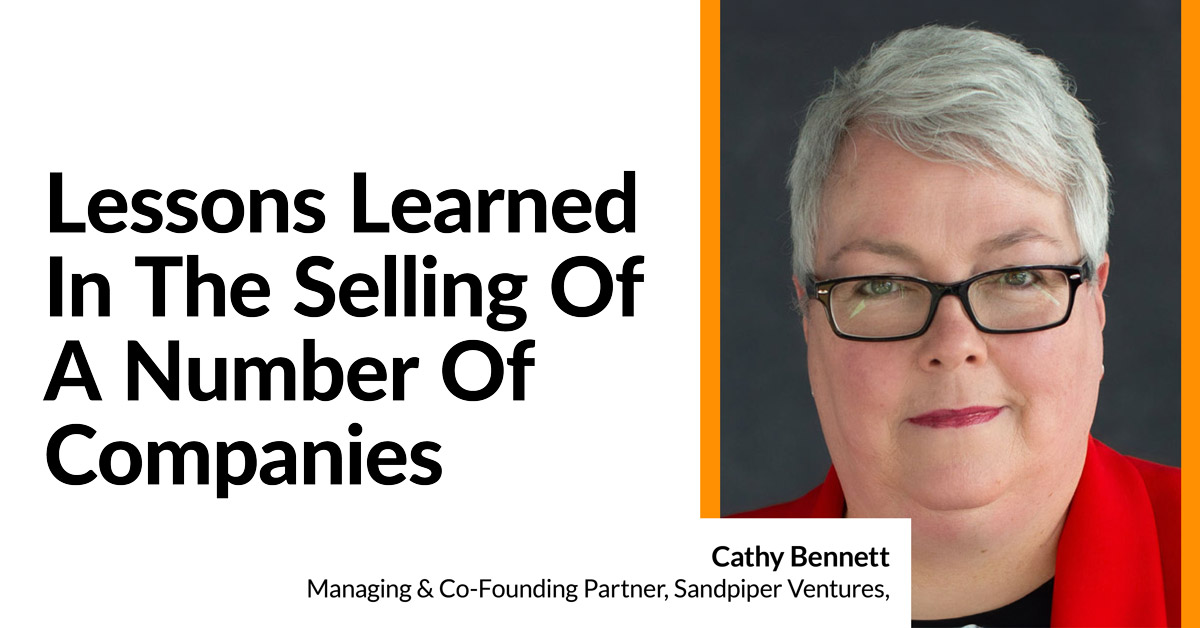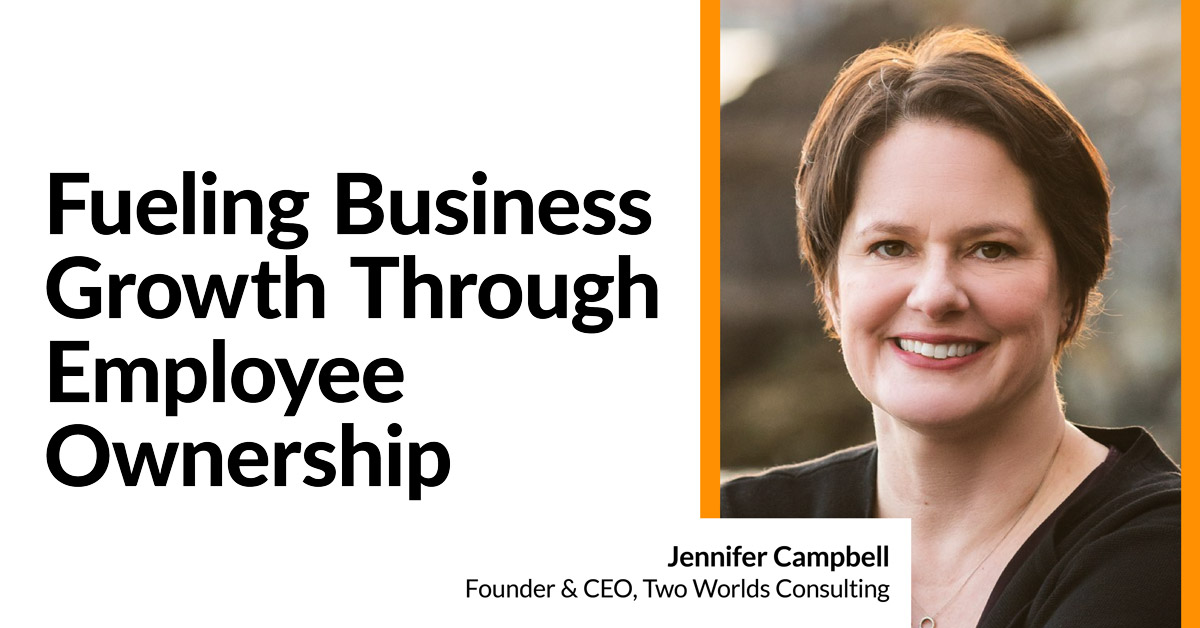How to Unlock Equity Without Selling Your Business
Claude Morin

At some point, every business goes through a transition. If selling, timing is everything and there are steps to take today to prepare for a maximum return tomorrow. If you are not ready to sell but want to unlock some equity value, there are also options to explore.
In this special edition of the BTF Insider, BDC, the presenting sponsor of our BTF conferences, shares key insights on how to get ready to sell or unlock equity value. You’ll learn:
- How to unlock and monetize a portion of your equity value without selling your business
- The benefits of minority ownership
- How becoming a shareholder, instead of an operator-manager, can help you achieve your goals for your business
The decision to sell a business is a difficult and multi-layered one with many considerations. Besides the complexity of the process and emotions involved, entrepreneurs need to make sure they maximize the value of the business they've put so much effort and time into building.
Claude Miron, Managing Partner, Growth Equity Partners with BDC Capital, said that anywhere between 75 and 80 per cent of transactions his team executes are geared toward some form of an ownership transfer. But, for entrepreneurs considering a transition, selling out is not the only option.
Another consideration if you don’t want to completely exit your company, is to consider a minority investment. This is worth evaluating if you find yourself in the following scenarios:
Maybe you are nearing retirement and nobody in the family is interested in taking over the business.
Maybe you are looking for partners, but the company’s senior management team doesn’t have the desire, the financial capacity or the risk appetite to purchase part of the business.
Or maybe you are facing new challenges and, while you believe you have figured out a way to bring your company to the next level, you do not necessarily want to risk the company’s accumulated net worth and potential equity value.
In any case, if you own a business, chances are a considerable portion of your personal net worth is tied up in the company. And as it stands today, unlocking some of that value is putting you up against some very difficult decisions.
Claude shares two pieces of advice: “Hire an advisor to help. I cannot emphasize this enough as the advisor will help to prepare for the process and help along the process. My second suggestion is to include a minority partner as an option.”
Minority partners, where there is a gradual transfer of ownership, provide unique opportunities for growth. It means a business owner can transition away from the daily operations and management of the business to an advisor and shareholder role. The risk exposure of their personal net worth is hence reduced and the partial monetization they receive helps them diversify their net worth and relieve them from the stress of having all their eggs in one basket through the minority partner buyout. With access to new resources provided by the investor and strategic advisory of new board members, they can still stay involved as a shareholder by influencing and guiding new opportunities and long-range projects that benefit the business.
Claude said that over the past 10 years, the growth/minority private equity has become a popular option for entrepreneurs, doubling the growth rate of assets under management in the buyout space.
He adds, “An ownership transfer is a journey, not a destination. It’s a process that allows an entrepreneur to sell a portion of their business and move into the role of shareholder, mentor and coach, and reap the success of their enduring legacy.”
In this article, BDC shares both traditional alternatives to unlocking equity, and dives into why a minority investment may be the right solution to unlock the full potential of your business over the long term.
BACK










